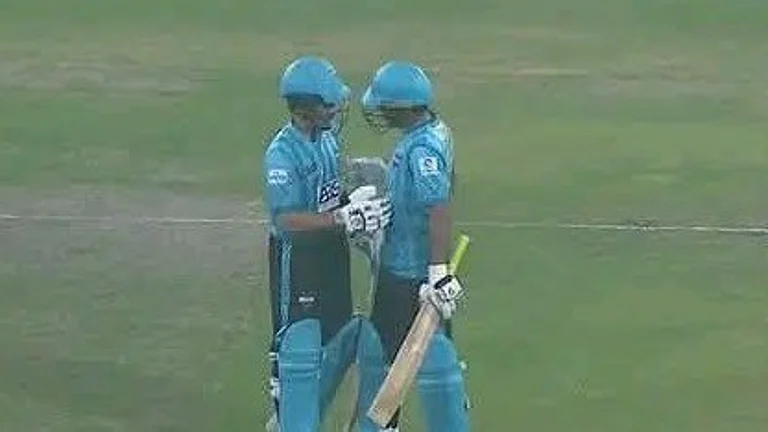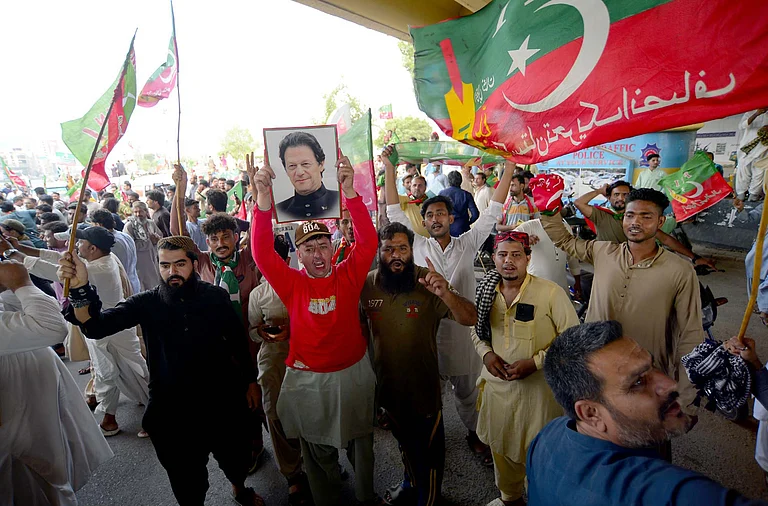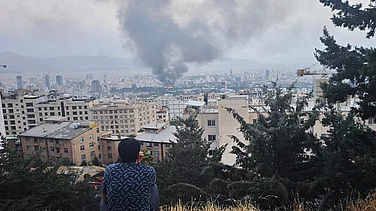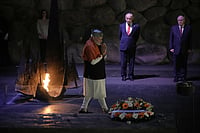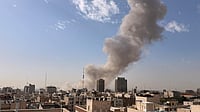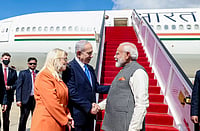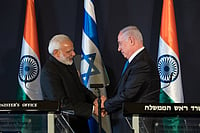Pakistan’s national elections' credibility is already in doubt, even before a single vote has been cast. This is because the Pakistan army, which controls the levers of power has decided to make sure that former prime minister Imran Khan and his Pakistan Tehreek-e-Insaf (PTI) is defanged politically. He and many of his top party functionaries are in jail. Prison sentences have been handed over liberally to Khan and wife. He is barred from contesting. His party is shorn of its symbol, the bat. Some 900 PTI candidates are contesting under various symbols, further confusing the PTI voters.
So, although elections are being held on Thursday, despite earlier fears of further postponement, democracy remains fragile in Pakistan, thanks to the military’s constant interference. In any confrontation between Pakistan’s powerful military and a civilian government, the army inevitably comes out trumps.
Yet, for a while, last summer after Imran Khan was arrested from the premises of the Islamabad High Court his supporters came out in massive numbers to protest, it seemed as if people were now taking on the military. They attacked the official residence of a top-serving army officer and raised slogans against the military, something unheard of in recent times. There was talk that the army was divided and on the back foot. Perhaps the vice-like grip of the military on elected governments was slowly but surely changing. There were rumours that many military families as well as a section of the army were siding with the PTI. But the army commander Asim Munir, hit back and how.
All talk of a division within the army is over. There is too much to lose for the military in a divided house. Everyone has now fallen in line behind the army commander and the military will continue to remain one of the most powerful institutions in Pakistan for a long time. “All that speculation of dissent in the army was not backed by evidence. The military will continue to call the shots for a long time to come,” a former Indian high commissioner to Pakistan, who did not wish to be identified said. “The problem is not just the military, but political parties are more than willing to tango with the army whenever there is the possibility of winning power,” he explains.
The army chief had a brush-in with Imran Khan when he was PM, and Munir was heading the Inter-Services Intelligence. The army commander is known to be an upright officer not tainted by corruption scandals as many others. In 2019, he brought to Khan’s notice the corruption of his wife Bushra Bibi, and other family members. Soon afterward, the then-PM removed him from his post as spymaster.
“Who will be made to lose, who allowed to win will have nothing to do with the votes they get,’’ Cyril Almedia a former columnist for Dawn commented on X. Many commentators believe that the match has already been fixed. Despite the cynicism all around, the fact is that the army swings into action normally after the elections are done and dusted, and the voters give a fractured mandate. This is what happened in 2018. Imran Khan was clearly the army’s favourite. But failed to get the required majority to form the government. So, the military got various groups to support their candidate and a hybrid government took shape. Until he fell out with former army chief General Bajwa, Imran Khan was proud of being on the same page as the army.
Imran Khan is undoubtedly the most popular politician in Pakistan today. And the injustice done to him has irked his strong support base, made up mainly of young people. The PTI is hoping that the youth will go out in large numbers and vote in candidates affiliated to the party. The PTI is hoping to get an app to download the independents who are actually PTI loyalist. If they can succeed in doing so there will not be confusion among voters who may not be aware of party affiliations, considering they are not allowed to use the symbol of the bat associated with the PTI. Imran Khan is urging voters to come out and elect independents affiliated with the PTI. Syed Muzamil Hasan Zaidi, Pakistan’s well-known podcaster said on X, “Gen Z is built differently. You can’t defeat this generation. You can try for a little while but they will outlive you and outgrow you. The only constant is change and the more you fight it the more painful it will be when it finally happens.”
Many PTI backers are hopeful that the youth who make up over 60 per cent of Pakistan’s voters will come out and give a resounding reply to the Kaptan’s opponents by voting for him. However, most analysts in Pakistan know that Imran Khan’s people will not thwarted. As of now, most predict a hung National Assembly, with neither the PPP nor the PML-N in a position to form the government. Pakistan’s “electables” will then come into play. Electables are powerful landlords or religious leaders who are not dependent on political parties to win elections. They have enough clout to win as independents and can be manipulated to support whichever party the establishment wishes. The electables have no political affiliations but are loyal to the army. When Imran Khan fell short of a majority in 2018, electables helped him form a coalition government.
So, in case no party can win an outright majority, the army and the ISI will get into action to help the candidate the top leadership wishes to install in office. By all accounts, it will be Nawaz Sharif again. But the military is well aware that for a long time, Sharif has built his political support base by taking on a virulently anti-army position.








